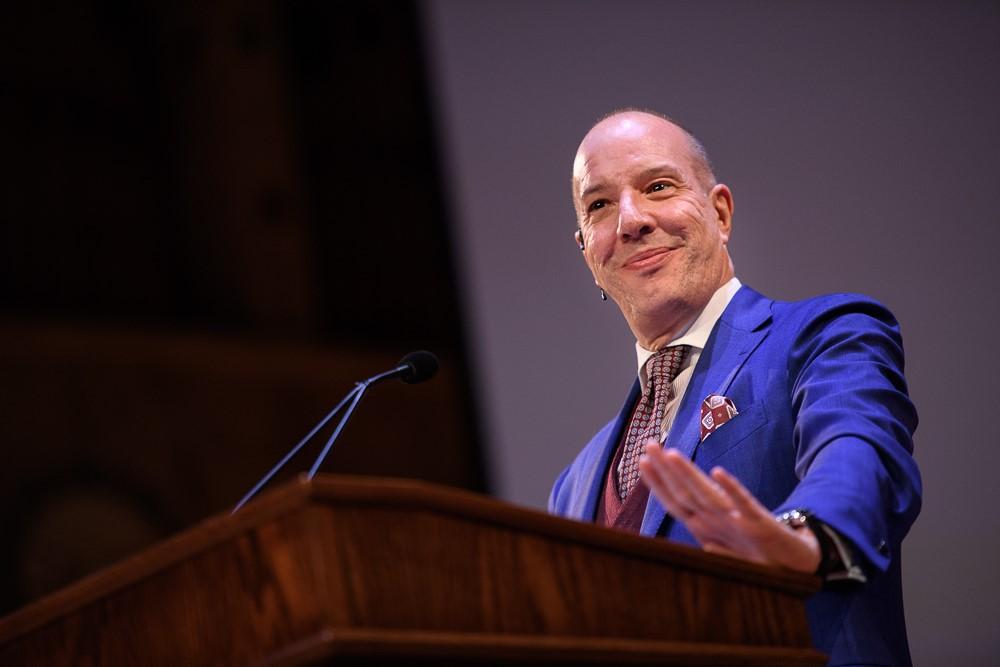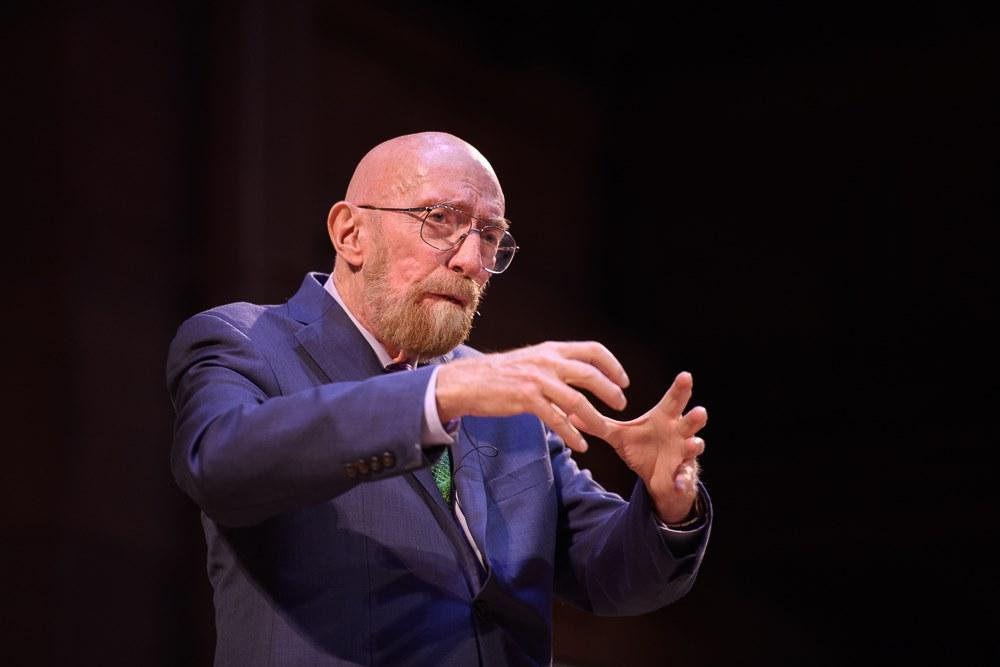2020 Award Recipient: Anthony D. Romero ’87

Anthony Romero, a public interest attorney, took the helm of the American Civil Liberties Union (ACLU) in 2001, one week before the Sept. 11 attacks. He quickly launched the Keep America Safe and Free campaign to help protect civil liberties and basic freedoms. He created the ACLU’s National Security Project, focusing on illegal practices associated with the Patriot Act.
Under Romero’s tenure, the ACLU has filed hundreds of legal actions, including some 200 against the Trump administration’s policy proposals, especially regarding immigration and blocking the addition of a citizenship question to the 2020 census.
Romero has overseen the ACLU’s expansion of advocacy efforts and political work to challenge injustices. For example, the ACLU lobbied to win the freedom to marry for same-sex couples and launched a nationwide campaign to reduce prison populations and combat racial disparities within the criminal justice system.
In 2017, the ACLU launched People Power, a grassroots effort to push local governments across the United States to protect immigrants, expand voting rights and education, and inform the public about civil liberties issues.
Romero was born in New York City to parents from Puerto Rico and was the first in his family to graduate from high school. He has a J.D. from Stanford Law School and is a member of the New York Bar Association. In 2005, Romero was named one of TIME magazine’s 25 Most Influential Hispanics in America. In 2007, he and NPR correspondent Dina Temple-Raston published the book “In Defense of Our America: The Fight for Civil Liberties in the Age of Terror.”
2020 Award Recipient: Kip Thorne *65

Kip Thorne, the Feynman Professor of Theoretical Physics, Emeritus, at the California Institute of Technology, joined Rainer Weiss and Barry Barish in winning the 2017 Nobel Prize in Physics “for decisive contributions to the LIGO detector and the observation of gravitational waves.” As a graduate student in the early 1960s at Princeton, Thorne overlapped with Weiss, who was a postdoctoral researcher at the University.
Thorne was a co-founder, with Weiss and Ronald Drever, of the LIGO (the Laser Interferometer Gravitational Wave Observatory). On Sept 14, 2015, LIGO picked up a signal of two black holes colliding to merge into one larger black hole — a breakthrough discovery of gravitational waves arriving at Earth from a collision that had happened in the universe 1.3 billion years ago. LIGO has since detected 10 more mergers, including a collision of neutron stars, spawning an entire new field of astronomy.
From 1967 to 2009, Thorne served on the faculty at Caltech, his undergraduate alma mater, and led a research group working on relativistic astrophysics and gravitational physics. He has won numerous awards for his research and teaching and is a member of several academies.
Thorne is a co-author with Charles Misner *57 and John Archibald Wheeler, the Joseph Henry Professor of Physics, of the 1973 graduate-level textbook “Gravitation,” which was re-issued by Princeton University Press in 2017. Soon after, the press published the award-winning “Modern Classical Physics,” which Thorne co-authored with Roger Blandford. Thorne also is known for writing for a broader audience and making connections between art and science, including being executive producer of the 2014 film “Interstellar,” for which he offered scientific insights, and followed with the book “The Science of Interstellar.” Thorne came to Princeton in April 2018 to give the 43rd Donald R. Hamilton Lecture and to highlight the history of gravitational research at the University.